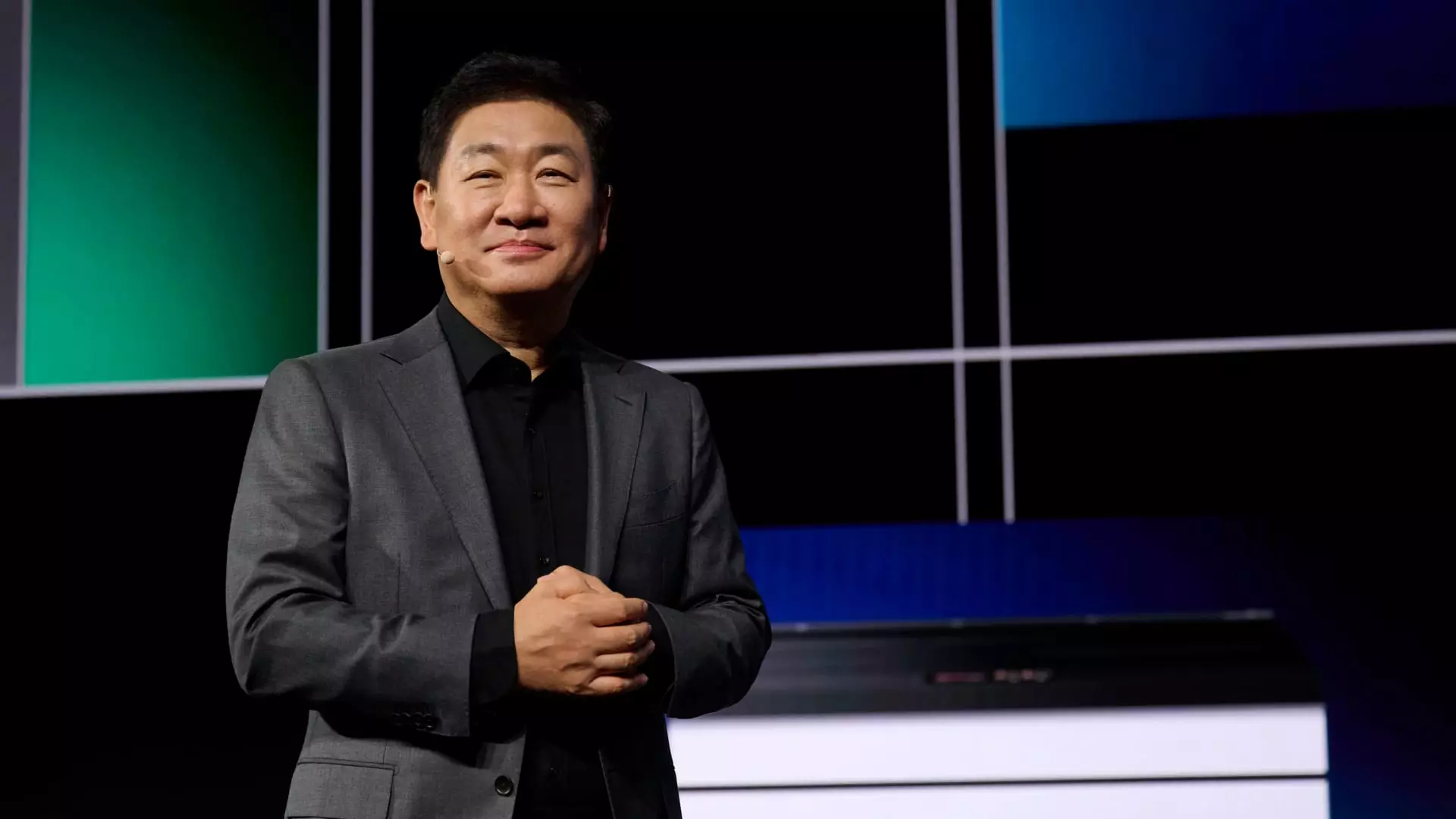Samsung Electronics is strategically repositioning itself to enhance its on-device Artificial Intelligence (AI) capabilities, aspiring to outpace the expected growth of the global consumer electronics market in 2025. With growth projections hovering around 3% for the sector, including smartphones, televisions, and home appliances, the South Korean conglomerate is targeting a more ambitious growth outlook of around 4% to 5% for its mobile devices segment. This determination was articulated by Jong-Hee Han, CEO of Samsung Electronics, during an interview with CNBC, underlining the company’s focus on innovation and competitive differentiation amidst an increasingly saturated market.
Samsung’s commitment to integrating AI across its product line is indicative of its forward-thinking approach in an era where smart technology is rapidly reshaping consumer expectations. The company is embedding advanced AI chips in various household appliances, from refrigerators to washing machines and robotic vacuum cleaners. This imbued intelligence aims to improve user interactions and automate everyday tasks, enhancing the overall consumer experience. Furthermore, Samsung’s flagship smartphone series, such as the Galaxy S24, is being equipped with sophisticated AI features like real-time translation for effective communication across languages.
In a landscape dominated by low-cost alternatives from Chinese giants like Huawei and Xiaomi, who have emerged as formidable competitors offering premium smartphones at reduced prices, Samsung’s strategy is not to engage in a pricing war. Instead, the company is focused on emphasizing security and user convenience as key differentiators. This nuanced approach not only seeks to maintain market share but also enhances brand loyalty in a competitive environment.
In light of the intensifying competition and shifting market dynamics, Samsung announced a significant leadership reorganization, appointing Jun Young-hyun as co-CEO. This strategic move aligns leadership efforts with the ongoing challenges in their semiconductor division, which has faced hurdles in keeping pace with rivals, particularly in the high-bandwidth memory (HBM) sector. Historically a leader in memory chip production, Samsung has recently found itself trailing behind SK Hynix in this crucial segment essential for AI applications, especially given Nvidia’s demand for HBM chips.
The expectations surrounding Samsung’s fourth-quarter revenue and profit forecasts are mixed, reflecting a complex interplay of market conditions. Analysts anticipate an operating profit of approximately 8.2 trillion won ($5.6 billion), a significant improvement year-on-year, yet a drop compared to the previous quarter’s earnings. This juxtaposition underscores the volatile nature of the tech market, where past performance does not always indicate future success.
Investor Sentiment and Stock Performance
The financial performance and stock value of Samsung Electronics are under scrutiny as the company navigates competitive pressures and operational challenges. Notably, shares plummeted 32% last year, contrasting starkly with the broader Kospi index losses of 9.6%. Such drastic dips have triggered concerns over Samsung’s market positioning and have led to strategic initiatives aimed at restoring investor confidence—most notably, a plan for a substantial share buyback amounting to 10 trillion won over the next year.
Market analysts remain cautiously optimistic about Samsung’s potential rebound. The combination of a buyback initiative and a renewed focus on technological innovation is seen as a method to stabilize the stock and enhance shareholder value. However, external factors, such as a potential delay in Nvidia’s approval for HBM chips and fluctuations in the PC market, continue to pose risks that have market experts reevaluating their forecasts for Samsung’s future performance.
As Samsung Electronics enhances its focus on AI and navigates fierce competition, its ability to adapt will remain paramount. The integration of smarter technology into household appliances and smartphones represents not just a trend but a necessary evolution in consumer electronics. The company’s efforts to reclaim competitive advantages amid market instability will largely depend on its innovations, strategic leadership decisions, and how effectively it can engage consumers who are increasingly emphasizing security, convenience, and advanced technology. As Samsung forges ahead, maintaining agility in response to both market demands and investor expectations will be essential in shaping its trajectory in the years to come.

